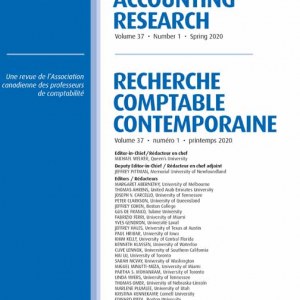
Cahan, S., Zhang, W. and Veenman, D. (2011). Did the waste management audit failures signal lower firm-wide audit quality at Arthur Andersen? Contemporary Accounting Research, 28(3):859--891.
-
Affiliated author
-
Publication year2011
-
JournalContemporary Accounting Research
This study investigates Arthur Andersen{\textquoteright}s audit quality in the decade before the collapse of Enron. Andersen{\textquoteright}s involvement in the Waste Management audit failures — which relate to audits of the company{\textquoteright}s 1992- 1996 financial statements — led the SEC to accuse Andersen of issuing false and misleading audit reports and resulted in a permanent injunction that prohibited Andersen from further violation of securities laws. We examine whether the Waste Management audit failures were symptomatic of widespread audit deficiencies at Andersen. Using three empirical measures of audit quality — discretionary accruals, clients{\textquoteright} propensity to meet or just beat analyst forecasts, and accounting misconduct identified by Accounting and Auditing Enforcement Releases (AAERs) — we find no overall evidence suggesting lower average audit quality at Andersen relative to the Big 4 during the period 1992-2001 for a sample of S\&P 1500 firms. Focusing on high litigation risk firms, however, we find larger absolute and income-increasing accruals and a greater propensity to meet or just beat analyst forecasts for Andersen clients relative to the Big 4 clients in the period August 7, 2000 to December 31, 2001, after Andersen{\textquoteright}s divorce from Andersen Consulting. These findings provide some evidence that, after the divorce, Andersen was not able to constrain aggressive accounting where it may have mattered most, that is, among its clients with the highest litigation risk.